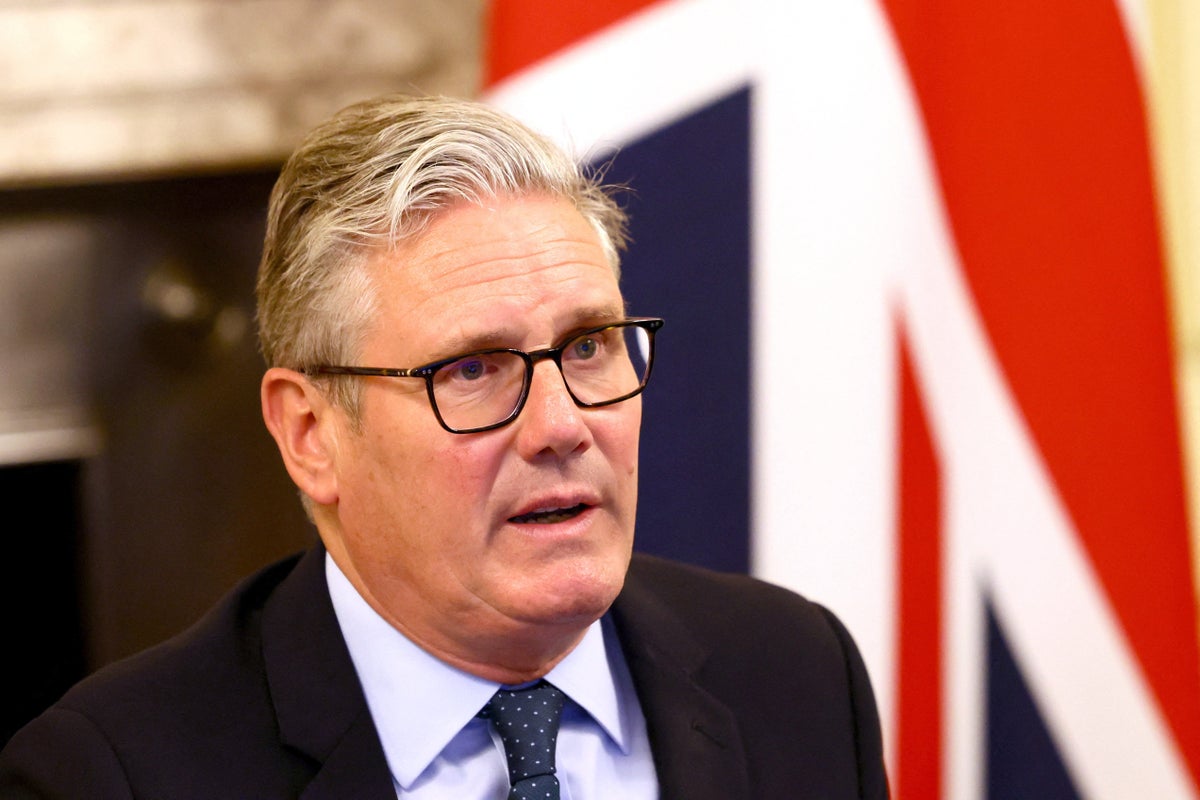Business
Stocks slide and pound dives as bond yields spike

Stocks in London fell sharply on Tuesday and the pound sank, unnerved by a renewed spike in bond yields.
“Warning lights are flashing about increasingly tricky economic conditions and geopolitical risk,” said Susannah Streeter, head of money and markets at Hargreaves Lansdown.
“As concerns collide about the global outlook, inflationary pressures and worrisome public finances, the FTSE 100 remains on the back foot, with other European indices also largely in the red.”
The FTSE 100 index closed down 79.65 points, or 0.9%, at 9,116.69. The FTSE 250 ended 470.80 points lower, or 2.2%, at 21,162.89 and the AIM All-Share finished down 3.07 points, or 0.4%, at 765.57.
In Europe, the Cac 40 in Paris ended down 0.7%, while the Dax 40 in Frankfurt closed 2.3% lower.
“Investors are finding little reason to chase stocks higher when bond markets continue to promote the need for caution,” said Rostro analyst Joshua Mahony.
The yield on UK 30-year government bonds – also known as gilts – jumped to the highest level since 1998, at 5.71% on Tuesday, up seven points from Monday, while the yield on the 10-year bond stretched to 4.81%, up six points.
Gilt yields move counter to the value of the bonds, meaning their prices fall when yields rise.
Bond yields also soared across Europe. In Germany, the 10-year bond climbed four points to 2.79%, while in France, the 10-year bond yield widened to 3.59%, up five points. The yield on 30-year government bonds hit 4.50% in France, a 14-year high. In Italy, the 10-year bond yield increased seven points to 3.71%.
The latest gains came amid political instability in France and concerns over rising government debt across Europe.
Kathleen Brooks at XTB Research said a driver of weakness in the UK bond market could be a delayed reaction to the Government reshuffle on Monday.
“The Prime Minister beefed up his economic team in the lead-up to the budget. This has not gone down too well, with concerns that there is still a strategy void when it comes to the economy, as the Government struggles to deliver the growth that it promised,” she said.
The shake-up saw the chancellor’s deputy Darren Jones move into a new role as Chief Secretary to the Prime Minister.
Sir Keir Starmer also brought in Minouche Shafik, a former Bank of England deputy governor, as his chief economic adviser.
Treasury minister James Murray replaced Mr Jones as Treasury chief secretary, while Chipping Barnet MP Dan Tomlinson replaced Mr Murray as Treasury exchequer secretary.
Simon French, head of economics at Panmure Liberum, said Mr Jones and Ms Shafik were a “sensible” duo of appointments and “long overdue” given the lack of economic expertise in the Prime Minister’s team.
But he noted gilts were sold off partly because Mr Murray and Mr Tomlinson “are seen as more left wing than Darren.”
Ms Brooks said the UK was not an “outlier” as European bond yields were also moving higher.
“A rise in UK yields always garner more attention, because our yields are at a higher level to begin with. However, if UK yields continue to rise, and if they start to rise at a faster rate than elsewhere, then it could be a sign the market is pricing in a growing probability that Rachel Reeves will throw away her fiscal rules and borrow more at the budget to fund spending, rather than increase taxes and stymie growth.”
Deutsche Bank thinks the autumn budget will be a “defining moment” for the UK as the Chancellor looks to fill a fiscal hole worth around £20 billion to £25 billion.
“How the Chancellor decides to fill the fiscal hole will be important,” Deutsche said.
“While we expect fiscal headroom to be restored, we expect the Chancellor to adopt a slightly looser fiscal policy path in the near term, compared to March, with a good chunk of fiscal consolidation likely to be backloaded,” the bank said.
The pound dropped to 1.3389 dollars late on Tuesday afternoon in London, compared with 1.3548 at the equities close on Monday. The euro fell to 1.1659 dollars, against 1.1705 dollars. Against the yen, the dollar was trading higher at 148.20 compared with 147.27.
On the FTSE 100, insurer Legal & General fell 4.5%, while wealth management firms Phoenix Group and St James’s Place declined 4.2% and 3.6% respectively.
Rate sensitive housebuilders Persimmon and Taylor Wimpey fell 3.4% and 3.2%, with the latter not helped by a rating downgrade by Bank of America to “neutral” from “buy”.
Retailer Marks & Spencer tumbled 4.0% on fears consumer spending could stall amid slowing economic growth, and as house broker Shore Capital lowered earnings forecasts.
Electricity generator SSE fell 3.7%, which JPMorgan attributed to “rising UK bond yields and concerns around the company’s balance sheet”. However, JPM sees the weakness as a “buying opportunity”.
On the FTSE 250, Ithaca Energy tumbled 13% as its two leading shareholders sold a 3% stake.
Peel Hunt confirmed DKL Energy, a wholly owned subsidiary of Delek Group, and Eni UK, an indirect wholly owned subsidiary of Eni, offloaded 49.6 million shares. They were placed by Peel Hunt with institutional investors at a price of 213.75p per share for a value of £106.0 million.
Gold hit another record high, climbing to 3,511.91 dollars an ounce on Tuesday against 3,476.94 on Monday.
UBS said elevated political and geopolitical risks underline the appeal of gold, which tends to benefit from uncertainty.
“Gold’s status as a durable long-term portfolio diversifier is strengthening amid higher government debts, persistent inflation, geopolitical risks, and the desire of ex-G10 central banks to raise their longer-term holdings as a percentage of total reserves,” the Swiss bank said.
A barrel of Brent traded at 68.81 dollars late on Tuesday afternoon, up from 68.63 on Monday.
The biggest risers on the FTSE 100 were Fresnillo, up 94.0p at 1,919.0p, Endeavour Mining, up 40.0p at 2,664.0p, Unilever, up 64.0p at 4,728.0p, BP, up 3.1p at 434.2p and Haleon, up 2.5p at 363.2p.
The biggest fallers were Whitbread, down 142.0p at 2,983.0p, Legal & General, down 11.0p at 236.1p, Unite Group, down 30.5p at 674.5p, Phoenix Group, down 28.5p at 653.0p and Land Securities, down 23.0p at 529.0p.
Contributed by Alliance News
Business
Netflix agrees revised all-cash deal for Warner Bros studios

Netflix has significantly increased its all-cash offer to acquire Warner Bros Discovery’s studio and streaming business, intensifying an ongoing takeover battle with rival Paramount Skydance.
The revised bid aims to secure Warner Bros’ extensive film and television library, alongside its premium HBO Max streaming service, in a move that could reshape the entertainment landscape.
In December, Netflix agreed to pay $23.25 in cash, $4.50 (£3.35) worth of Netflix stock per share to buy Warner Bros assets.
The deal valued the business at around $82.7bn (£61.5 bn). However, shares in Netflix have dropped by almost 15 per cent since the deal was first announced.
The US-based streaming giant has said it will now offer $27.75 (£20.64) per share in cash to buy the business, which will include Warner Bros’ extensive library of film and TV rights, as well as its HBO Max streaming service.
Analysts have said the new terms are favourable for investors in Warner Bros Discovery.
Despite the improved financial terms, Warner Bros Discovery continues to back Netflix over a competing bid from Paramount Skydance.
The rival studios and media giant had put forward an offer of $30 per share in cash, but crucially, this was for the entire Warner Bros Discovery company, rather than just its studio and streaming divisions, highlighting a key difference in the acquisition strategies.
David Zaslav, president and chief executive of Warner Bros Discovery, expressed his enthusiasm for the impending merger.
He stated: “Today’s revised merger agreement brings us even closer to combining two of the greatest storytelling companies in the world and with it even more people enjoying the entertainment they love to watch the most. By coming together with Netflix, we will combine the stories Warner Bros has told that have captured the world’s attention for more than a century and ensure audiences continue to enjoy them for generations to come.”

Greg Peters, Netflix’s co-chief executive, underscored the strategic and financial benefits of the amended agreement.
He commented: “By amending our agreement today, we are underscoring what we have believed all along: not only does our transaction provide superior stockholder value, it is also fundamentally pro-consumer, pro-innovation, pro-creator and pro-growth. Our revised all-cash agreement demonstrates our commitment to the transaction with Warner Bros and provides WBD stockholders with an accelerated process and the financial certainty of cash consideration, while maintaining our commitment to a healthy balance sheet and our solid investment grade ratings.”
The agreed deal is contingent on Warner Bros Discovery completing a proposed spin-off of its cable channels, which include CNN, TBS, and TNT Sports in the UK.
Business
India’s Core Industries Grow 3.7% In December 2025, Cement Tops List

Last Updated:
India’s Index of Eight Core Industries rose 3.7 percent in December 2025, led by cement and steel growth, while oil and gas output declined.

Infrastructure-Linked Sectors Push Core Index Higher in December
India’s core industrial sectors showed stronger momentum in December 2025, with the Index of Eight Core Industries (ICI) rising 3.7 per cent year-on-year, according to provisional government data. This marks an improvement from November’s final growth rate of 2.1 per cent, signalling a mild recovery in key production segments.
The eight core industries together account for 40.27 per cent of the weight of the Index of Industrial Production (IIP), making them a crucial indicator of overall industrial health.
Cement, Steel Lead the Growth
Cement and steel emerged as the strongest performers in December. Cement production jumped 13.5 per cent, reflecting steady demand from infrastructure and construction activity. Steel output also remained robust, rising 6.9 per cent during the month.
Electricity generation increased by 5.3 per cent, pointing to sustained power demand from industry and households. Fertilizer production grew 4.1 per cent, offering support to the agricultural sector, while coal output rose 3.6 per cent, helping ease supply pressures.
Oil and Gas Remain a Weak Spot
In contrast, the oil and gas segments continued to struggle. Crude oil production declined by 5.6 per cent, while natural gas output fell 4.4 per cent in December compared to the same month last year. Petroleum refinery production also slipped 1.0 per cent, highlighting ongoing operational and supply-side challenges in the energy sector.
Cumulative Growth Still Modest
For the April–December 2025-26 period, the cumulative growth of the core industries stood at 2.6 per cent, slightly muted despite strong gains in cement and steel. Steel recorded a sharp 9.5 per cent cumulative growth, while cement rose 8.8 per cent.
However, coal, crude oil, and natural gas saw cumulative declines, which weighed on the overall index.
January 20, 2026, 18:31 IST
Read More
Business
Toy sellers’ keep close watch on under 16s social media ban

Kevin PeacheyCost of living correspondent
 Getty Images
Getty ImagesUK toy sales have risen for the first time in five years, but sellers are braced for the potential impact of any social media ban for under-16s.
The value of toy sales rose by 6% last year, compared with the previous year, according to research company Circana, bringing some much-needed cheer for a sector that has struggled since the pandemic.
The rebound has been driven by the so-called kidult market – which relates to players over the age of 12, some of whom are influenced by trends on social media.
But experts gathered at the annual Toy Fair in London on Tuesday said that films, video games and playground chat could still help push further growth in 2026.
Cost of living pressures have loomed over families in recent years, although spending on children – particularly at Christmas – has remained a priority for many.
Covid lockdowns brought a boost to the sector when toys and games became central to keeping children and adults entertained at home.
Sales dipped since then, until last year when the number of toys sold rose by 1% compared with 2024, according to Circana.
With kidults spending more, the value of sales rose by 6% – the first increase since 2020, according to Circana. It valued the UK market at £3.9bn last year.
Melissa Symonds, executive director of UK toys at Circana, described last year as a “clear turning point” for the sector.
Cinema, streaming, video game and sport tie-ins – such as Minecraft and Formula 1 – all proved successful.
Symonds said that excluding the unusual circumstances of the pandemic, last year recorded the first organic growth since 2016.
Social media trends
Kidults accounted for 17% of the toy market in 2016, but this had risen to 30% by last year.
Building sets, predominantly Lego, has appealed to adults, but trends amplified on social media have also led to a 12% growth in collectibles across generations. Pokémon, K-Pop Demon Hunters, and Hello Kitty have all proved to be “market-moving trends”, according to Circana.
Symonds said the industry would be considering the impact of the social media ban for under-16s in Australia, and the potential for a similar ban in the UK.
She said manufacturers and retailers may need to reconsider how some of these toys were marketed if bans were brought in more widely.
Kerri Atherton, from the British Toy and Hobby Association – which is hosting its annual trade fair at London’s Olympia, said it was still too early to know what the fallout would be.
She described 2025 as a pivotal moment for the UK toy sector, but said businesses and consumers still faced financial challenges going into 2026.
-

 Tech1 week ago
Tech1 week agoNew Proposed Legislation Would Let Self-Driving Cars Operate in New York State
-

 Entertainment1 week ago
Entertainment1 week agoX (formerly Twitter) recovers after brief global outage affects thousands
-

 Sports5 days ago
Sports5 days agoPak-Australia T20 series tickets sale to begin tomorrow – SUCH TV
-

 Business4 days ago
Business4 days agoTrump’s proposed ban on buying single-family homes introduces uncertainty for family offices
-

 Fashion3 days ago
Fashion3 days agoBangladesh, Nepal agree to fast-track proposed PTA
-

 Politics3 days ago
Politics3 days agoSaudi King Salman leaves hospital after medical tests
-

 Tech5 days ago
Tech5 days agoMeta’s Layoffs Leave Supernatural Fitness Users in Mourning
-

 Tech6 days ago
Tech6 days agoTwo Thinking Machines Lab Cofounders Are Leaving to Rejoin OpenAI






